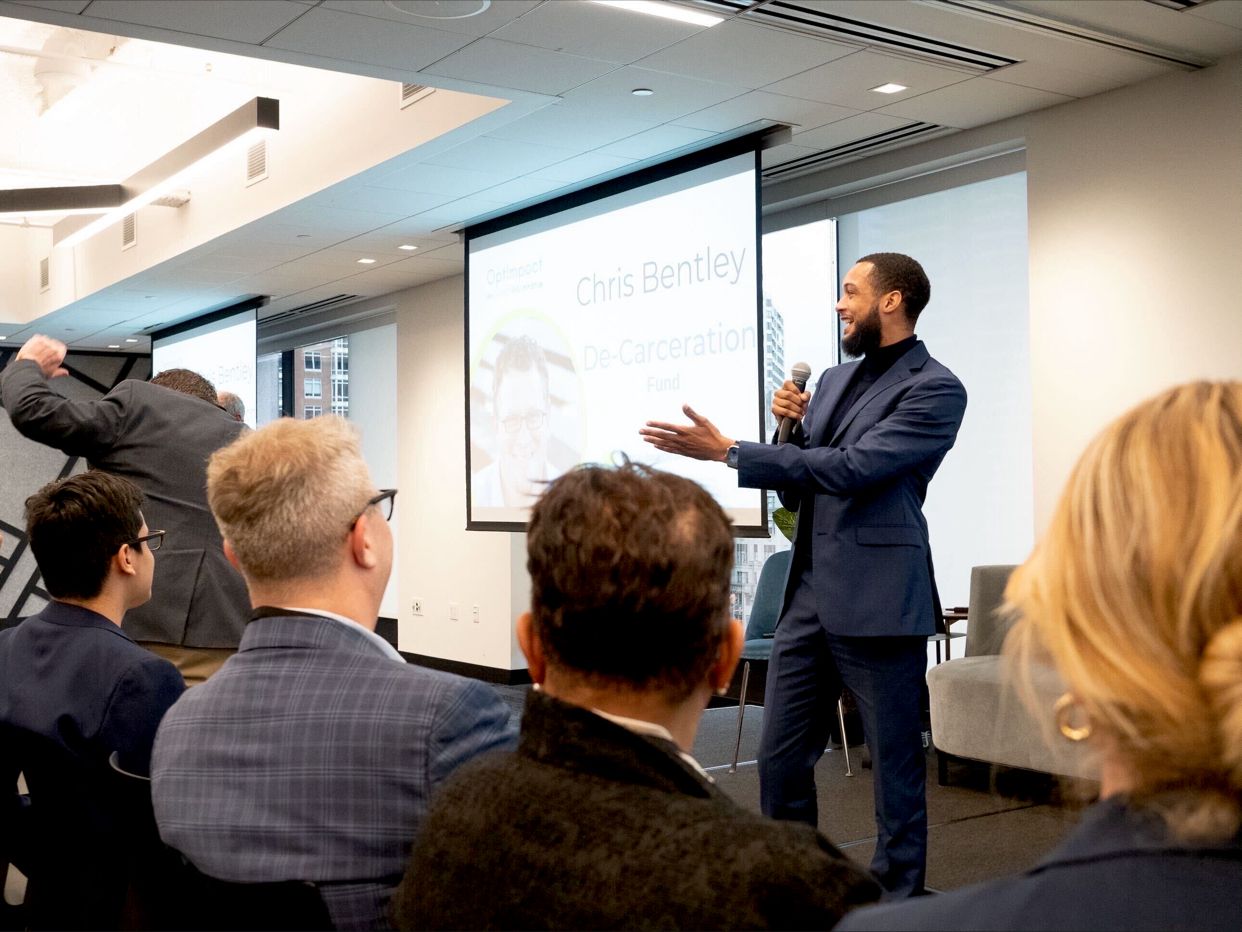The De-Carceration Fund is dedicated to transforming the U.S. criminal justice system by investing in innovative startups that alleviate the suffering the U.S. criminal justice perpetuates. By focusing on early-stage companies, the De-Carceration Fund aligns financial goals with social impact, rejecting the extractive models that have long defined private sector involvement in incarceration.
With 2.3 million individuals currently incarcerated in the U.S., each costing taxpayers approximately $35,000 per year, the financial burden is staggering. More than 50% of those released return to prison within three years, contributing to a cycle of recidivism that drains public resources. Beyond direct expenses, the indirect cost of incarceration to society is estimated at $260 billion annually, impacting families and communities nationwide. Meanwhile, private companies earn $7 billion from the prison system, with $3 billion of that burden falling directly on the families of incarcerated individuals.
The De-Carceration Fund aims to disrupt this broken system by backing innovative solutions that reduce incarceration rates, improve conditions for those affected by the justice system, and foster successful reentry. Portfolio ventures like UpTrust and Pigeonly exemplify this mission—enhancing communication, reducing pretrial violations, and easing financial burdens on families. Through technology-driven innovation and scalable solutions, the De-Carceration Fund is committed to creating a more effective, humane justice system.
The De-Carceration Fund Origin Story
Lawrence Williams, co-founder of The De-Carceration Fund, grew up immersed in two worlds—entrepreneurship and law enforcement. His father’s work as an entrepreneur and his mother’s 27-year career as a Philadelphia police lieutenant, combined with her Ph.D. in psychology, gave Lawrence a rare perspective on both the potential for business innovation and the complexities of the criminal justice system. These early influences, coupled with his education at Howard University, where he explored systemic inequities, shaped his passion for making a meaningful impact on one of the most pressing challenges in society.
At Howard, Williams began questioning the disconnect between private sector innovation and public sector reform, especially within the justice system. His journey as a product manager and investor helped him understand the power of well-designed business solutions to drive social change. After a successful exit as CEO of The Moves, a social event management startup, Williams began searching for ways to apply his skills toward impact-driven solutions. Around this time, he partnered with Chris Bentley, a fellow impact investor, and together they saw a unique opportunity to disrupt a system that was not only outdated but actively harmful.
In 2020, Lawrence and Chris launched The De-Carceration Fund with a focus on supporting startups that tackle key challenges within the justice system—such as preventing incarceration, improving prison conditions, and supporting successful reentry into society. Their first investment, UpTrust, provided a perfect proof of concept: the company’s platform improved communication between public defenders and their clients, cutting pretrial violations by 50%.
A Vision for Systemic Change
The De-Carceration Fund envisions a future where financial exploitation and suffering within the justice system are replaced with sustainable, meaningful solutions. Its strategy focuses on three core areas: prevention, improving conditions, and ensuring successful reentry. Through targeted investments, the fund aims to disrupt cycles of incarceration, foster rehabilitation, and build a more just system that supports individuals and their families:
- Prevention: Reducing Entry into the Criminal Justice System
- To reduce the number of people entering the system, the fund backs innovative solutions in key areas: cash bail reform, foster care support, law enforcement reform, gun control initiatives, domestic violence prevention, community-based public safety alternatives.
- To reduce the number of people entering the system, the fund backs innovative solutions in key areas: cash bail reform, foster care support, law enforcement reform, gun control initiatives, domestic violence prevention, community-based public safety alternatives.
- Improving Conditions: Reducing Suffering Inside the System
- For those currently incarcerated, the fund focuses on minimizing suffering and providing opportunities for growth: juvenile justice programs, family support services, educational and vocational programming, affordable legal assistance, sentence reduction and reform initiatives.
- For those currently incarcerated, the fund focuses on minimizing suffering and providing opportunities for growth: juvenile justice programs, family support services, educational and vocational programming, affordable legal assistance, sentence reduction and reform initiatives.
- Ensuring Successful Reentry: Breaking the Cycle of Recidivism
- Supporting individuals as they transition back into society is crucial to ending the cycle of incarceration. The fund invests in efforts that focus on: employment opportunities, entrepreneurial resources, parole system reform, access to essential support services.
How You Can Help
Support The De-Carceration Fund by advocating for meaningful criminal justice reform and learning more about their innovative portfolio.








